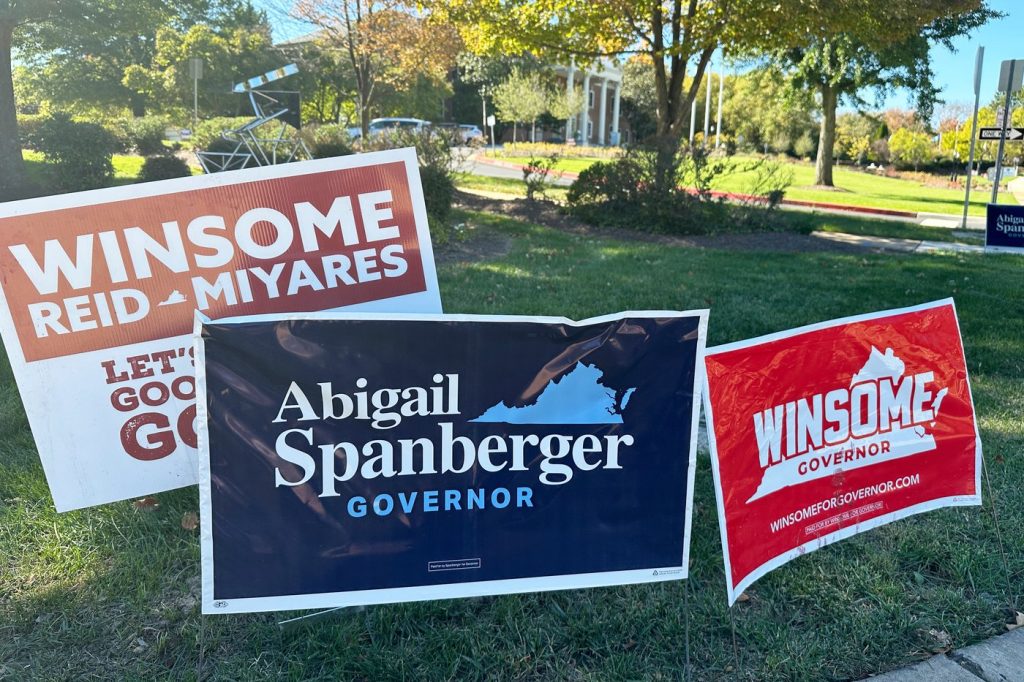On Tuesday, November 7, 2025, Virginia will witness a historic gubernatorial election as it prepares to elect its first female governor. Republican Lt. Gov. Winsome Earle-Sears is competing against Democratic U.S. Rep. Abigail Spanberger to succeed the term-limited Republican Governor Glenn Youngkin. In addition to the governor's race, voters will also cast their ballots for lieutenant governor, attorney general, and members of the Virginia House of Delegates.
This election is particularly notable as it is one of only two gubernatorial elections held in the United States this year. Historically, the outcomes of elections in Virginia and New Jersey, which take place in the year following a presidential election, serve as bellwethers for national sentiment regarding the party in power. Given the political dynamics at play, the results of this election could reflect voter attitudes towards the current presidential administration.
Throughout the campaign, Spanberger has maintained a financial lead, raising approximately $66 million compared to Earle-Sears' $35 million. As the campaign entered its final stretch, Spanberger had about $4.1 million remaining in her campaign fund, while Earle-Sears had $1.3 million. This financial disparity could significantly influence voter outreach and engagement efforts in the closing days before the election.
The race for lieutenant governor features Democratic state Senator Ghazala Hashmi from Richmond and Republican talk-radio host John Reid. Hashmi won a competitive Democratic primary in June, while Reid ran unopposed for the Republican nomination. Reid's campaign faced turbulence early on after allegations emerged linking him to a controversial social media account containing explicit photos, which Governor Youngkin publicly condemned, urging Reid to withdraw. Reid has denied any involvement in the account, adding to the campaign's drama.
In the attorney general's race, incumbent Republican Jason Miyares seeks re-election against former Democratic delegate Jay Jones. The campaign has been marred by controversy due to text messages from Jones suggesting violence against a prominent Republican lawmaker, which he later apologized for. This incident has become a focal point in both the attorney general race and the broader gubernatorial contest, with Earle-Sears criticizing Spanberger for not demanding Jones step down from the race.
The Virginia House of Delegates is also up for grabs, with Democrats currently holding a slim 51-48 seat majority and one seat vacant. Control of this chamber is critical, as the state Senate is not up for election in 2025. Voter turnout and sentiment towards party loyalty could play a significant role in determining the balance of power in the House.
Over the past two decades, Virginia's political landscape has shifted notably, primarily due to population growth in the Northern Virginia suburbs, which tend to lean Democratic. Historically, Virginia has oscillated between Republican and Democratic governorships, having elected candidates from different parties seven times in the last 60 years. A trend has emerged where, after a presidential election won by one party, Virginia voters typically opt for a governor from the opposing party in the subsequent year.
Voter participation statistics show that Virginia had around 6.3 million registered voters as of early September, with the previous gubernatorial election in 2021 seeing a turnout of about 55%. The upcoming election is anticipated to attract similar or possibly increased engagement, given the competitive nature of the races. As of the eve of Election Day, nearly 987,000 ballots had been cast in early voting.
Polls across the state will close at 7 p.m. ET on Election Day. The Associated Press plans to provide updates and declare winners in the races for governor, lieutenant governor, attorney general, and the House of Delegates. Notably, Virginia does not automatically conduct recounts; they may be requested but must be financed by the candidate unless certain narrow margin conditions are met. The framework for elections in Virginia, along with turnout dynamics, will play a critical role in determining the outcomes of these closely contested races.
As voters head to the polls, all eyes will be on how the results unfold, with implications that could extend far beyond state borders, influencing national party strategies moving into the 2026 midterm elections.











